2004
Shortly after the 2003 launch of the Canadian Coalition for Global Health Research (CCGHR) (now Canadian Association for Global Health), the Coalition organized its first summer institute in Halifax in 2004. This led to a series of eight similar events held globally, with an overarching theme of research to action. After a pause of several years, during which the institute was formally evaluated, a local collaborative version, the Ontario Coalition Institute (OCI) was tested.
2017-2021
Based on the success of the OCI, a provincial version, the British Columbia Coalition Institute (BCCI) was held in Kelowna in 2017, followed by BCCI-2 in Victoria in 2019, and a hybrid model (BCCI-3) in 2021.
2022
A key feature of the BCCI model was the addition of a Community of Practice (CoP) component. In July 2022, the BCCI leadership organized a 2-day workshop, an output of which was a 3-year strategic plan. Today, the BCCI community is comprised of a program team and learning hubs across the province.
The Program Team
Katrina Plamondon
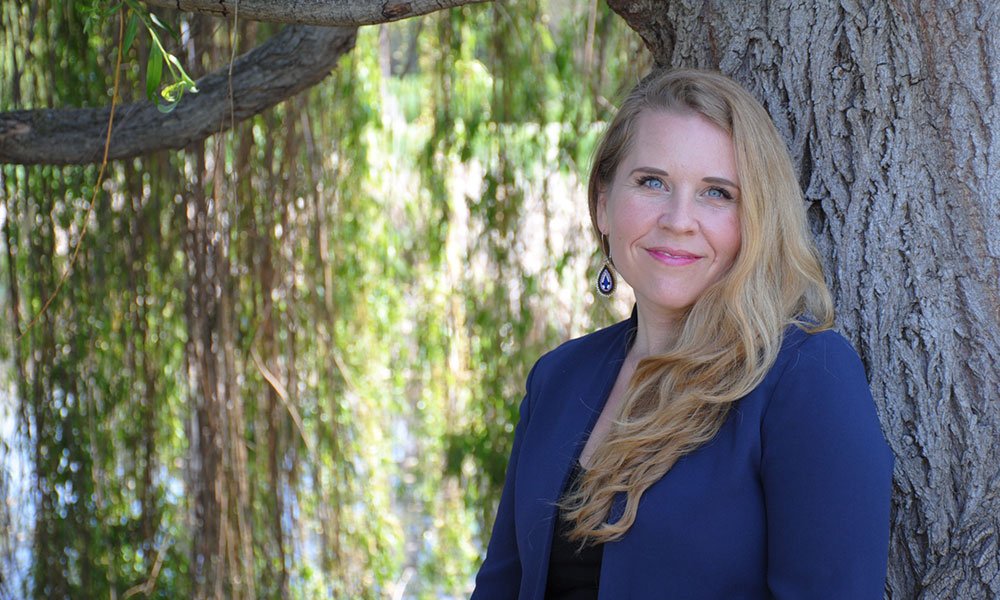
Katrina Plamondon is a Canadian woman, mother, and artist of mixed Indigenous (Cree) and European (Irish, Quebecois, German-Jewish) ancestry. She is an Assistant Professor at the University of British Columbia Okanagan, School of Nursing, situated in the beautiful traditional territory of the Sylix Nation. She supports the Interior Health Research Department, where her work focuses on health system strengthening through enabling people across health systems to use and do research in practice and policy.
Her clinical foundations are in critical care/emergency and street outreach. She holds a Master of Science in Community Health & Epidemiology (University of Saskatchewan) and completed her PhD at the University of British Columbia under a Banting & Best Canada Graduate Scholarship. Her doctoral research extended a decade of research and practice in knowledge translation with a focus on knowledge-to-action for health equity.
A member of the Canadian Coalition for Global Health Research since 2004, Katrina co-chairs the University Advisory Council (comprised of representatives from 24 institutions across Canada) to promote more consistent, coherent investments and practices in global health research. She was the Principal Investigator for the multi-year Gathering Perspectives Studies that led to the creation of the equity-centred CCGHR Principles for Global Health Research and the lead on a series of publications contributing to national dialogue about Canada’s role in global health research.
Vic Neufeld
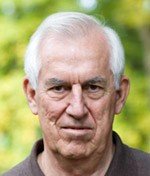
Vic Neufeld is a professor emeritus at McMaster University, and adjunct professor at Simon Fraser University, York University, and University of Victoria. He is also an Associate Fellow at University of Victoria’s Centre for Global Studies. Along with Jerry Spiegel and others, he was a founding member of the Canadian Coalition for Global Health Research, now Canadian Association for Global Health (CAGH) and serves as the Special Advisor. His interests include strengthening health research systems in low and middle-income countries (LMICs), leadership development, and research on the health impacts of climate change.
Tasha-Aliya Kara
Tasha-Aliya Kara is an MPH candidate at the Dalla Lana School of Public Health (DLSPH) at the University ofToronto, where she focuses on social, behavioural, and global health. Since 2019, she has been the Community of Practice coordinator for the British Columbia Coalition Institute.
Prior to this degree, she worked with Health Emergency Management BC (HEMBC), a program of the Provincial Health Services Authority, serving 65% of British Columbia’s population. She responded directly to a diverse set of climate-related disasters including the catastrophic June 2021 heat dome, wildfires, and floods, and oversaw an end to COVID-19 outbreaks in long-term care homes across Vancouver Coastal Health and Fraser Health Authority.
Tasha is a firm believer in ensuring equal access to health care for all and places social and climate justice at the heart of her work. She wants to continue to critically examine the structural determinants of health and wants to innovate more equitable solutions to the most pressing health emergencies of our time.
Leigh Borrett
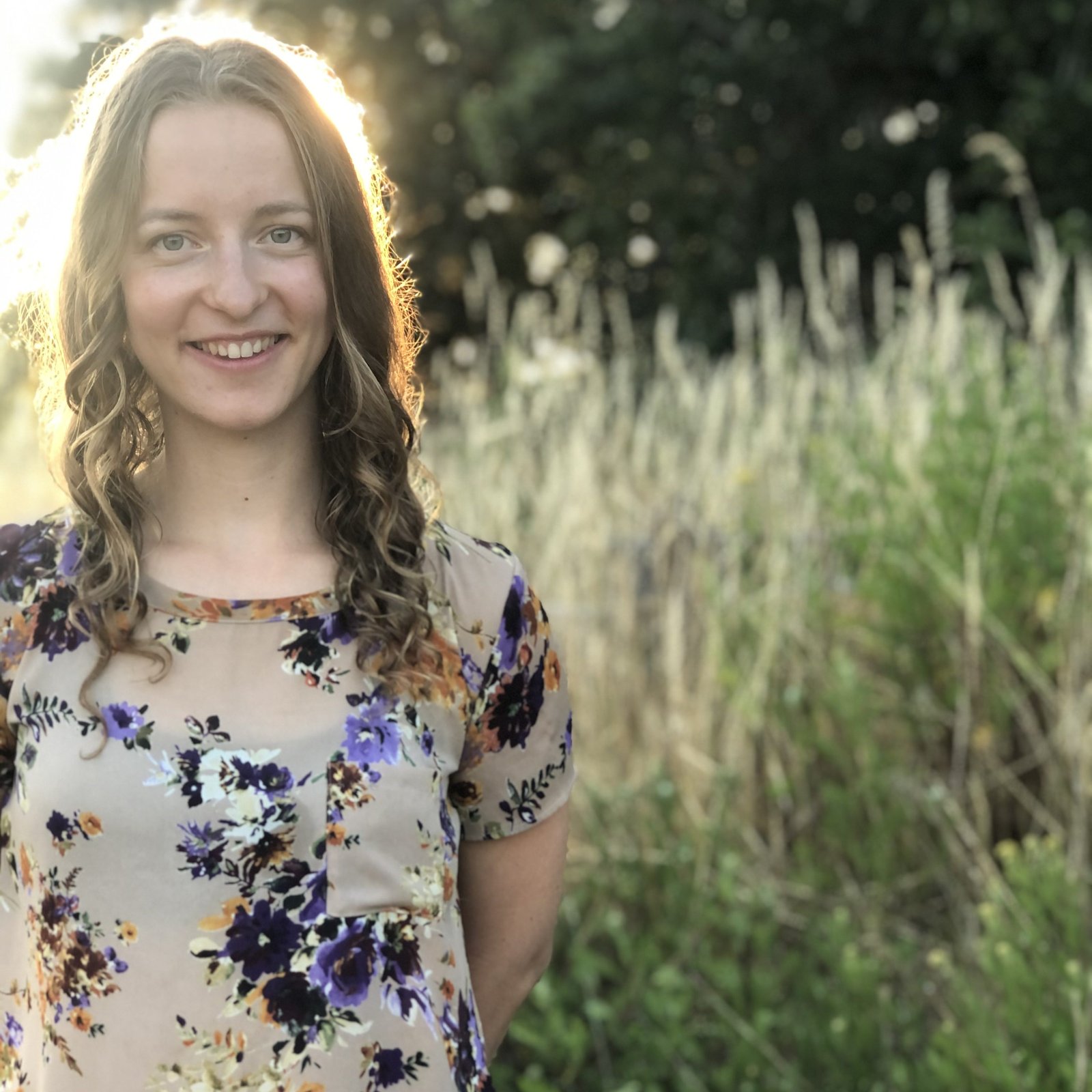
Leigh Borrett is a Civil Engineer-In-Training with a Masters degree Water Treatment from the Public Health & Environmental Engineering (PH2E) Lab at the University of Victoria.
With a research focus on water treatment in emergency context, Leigh has a strong interest in sustainability and climate resilience. Leigh works with the Science of Health Equity Learning Lab (SHELL) at UBCO to apply the principles of knowledge translation and knowledge-to-action for health equity in her everyday work.
Learning Hubs
University of British Columbia
Jerry Spiegel
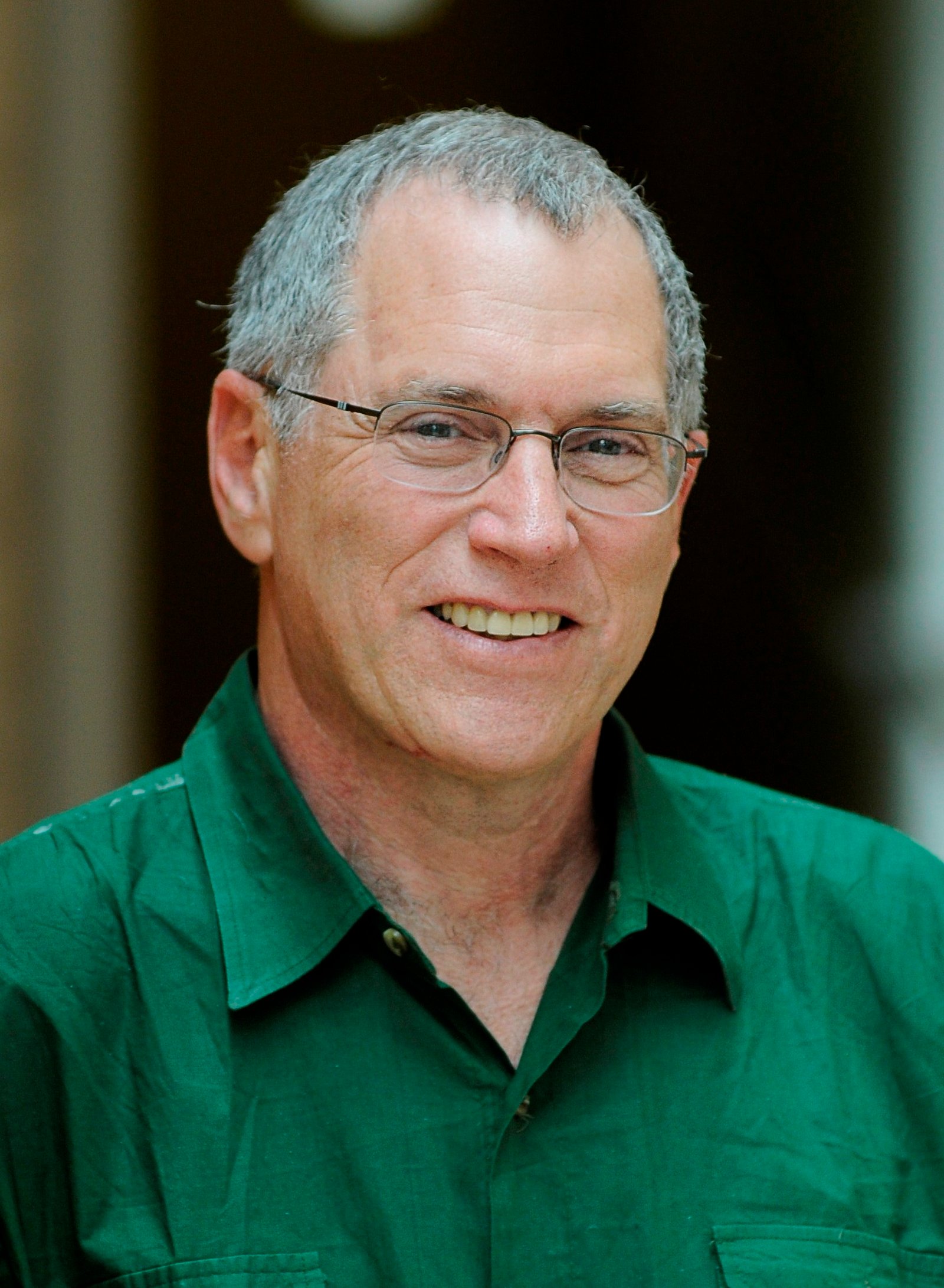
Dr. Jerry Spiegel is a professor and co-director of the Global Health Research Program in the School of Population and Public Health at the University of British Columbia. He is also affiliated with the Liu Institute for Global Issues.
Jerry has led research and capacity building projects in Ecuador, South Africa, Cuba and Slovakia. His research interests include effects of globalization on health, ecosystem approaches to human health, economic evaluation of global health interventions, and health equity in Latin America.
Prince Adu
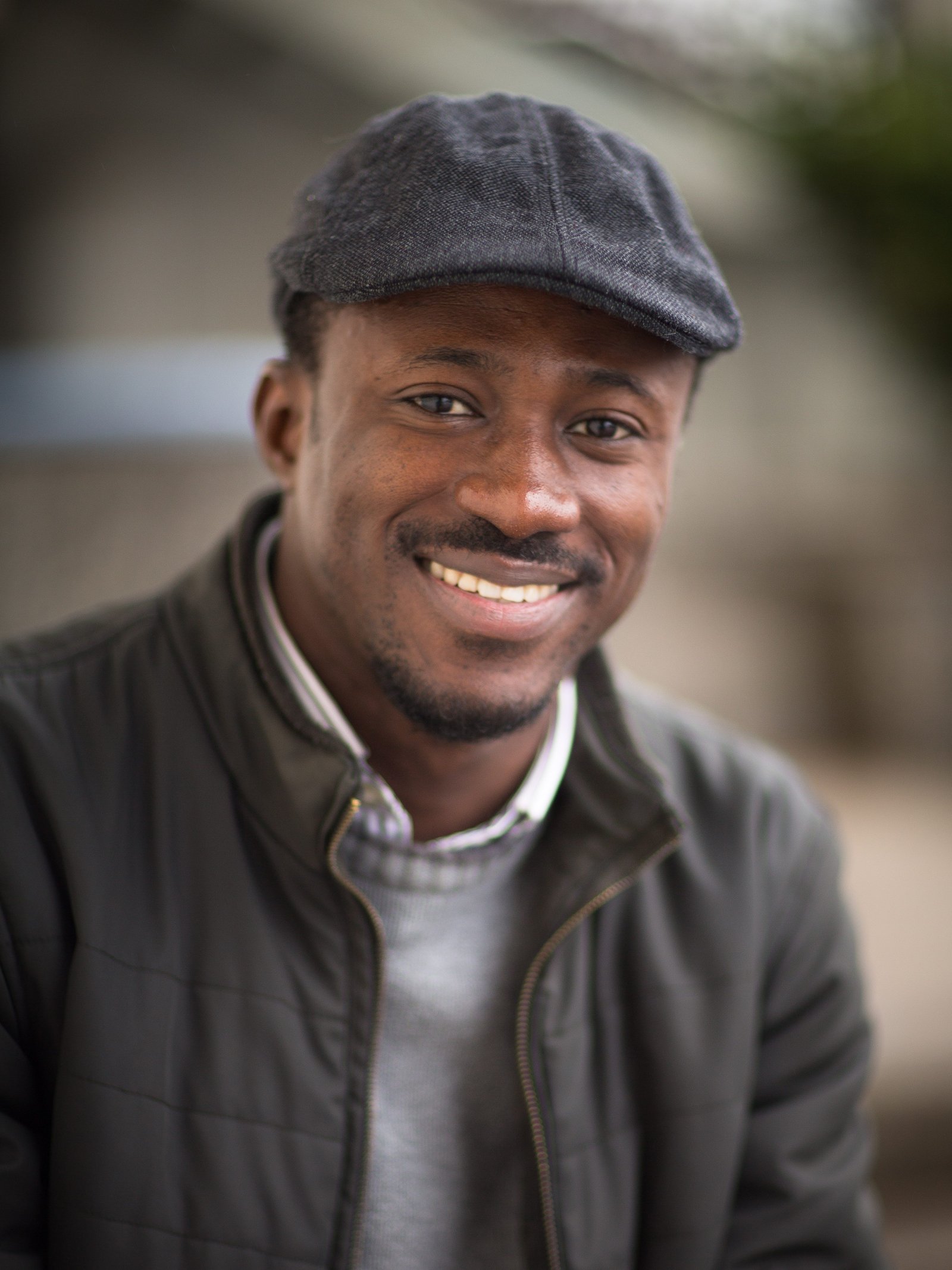
Prince is a public health professional, researcher, and course instructor with an extensive background in global health, health systems research and international development. He received his PhD from the University of British Columbia (UBC)’s School of Population and Public Health. He is passionate about global health and has worked and conducted equity-centred research in Ghana, South Africa, Mozambique, Ecuador, and other countries. Currently, he is an Adjunct Professor at UBC’s School of Population and Public Health.
Raluca Radu

Raluca is a registered nurse and a current graduate student at the University of British Columbia enrolled in the final year of the Master of Science in Nursing program. Starting in September, Raluca is focusing her final graduate research on integrating environmental health topics, particularly those related to climate change & human health into undergraduate nursing education. Through attending the BC Coalition Institute, Raluca hopes to increase her understanding of how planetary health influences human health, and most importantly what are the ways through which health care providers such as nurses can contribute to improving care of the population in their communities and beyond.
Equally, Raluca is passionate about global health and leadership. She is hopeful to work with the World Health Organization and the International Council of Nurses in the health policy realm. In her spare time Raluca is an avid traveller and is looking forward to seeing Belgium for the first time this September.
Verena Rossa-Roccor
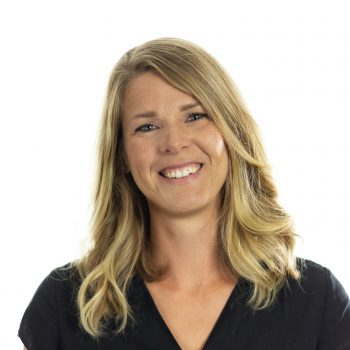
Verena Rossa-Roccor, MD, MSc, PhD Student. Verena’s primary motivation to get degree after degree (she is currently enrolled at UBC’s School of Population and Public Health) is to make the world a more just, environmentally sustainable, compassionate place. Her research focus thereby lies on the intersection between environmental policy and human health impacts, with a special interest in the food system and – as a psychiatrist – mental health considerations. Her PhD work is looking at ways to transform the way public health academics are conducting knowledge translation in the environmental policy realm. She is asking the question why ‘activism’ and ‘lobbying’ are considered ‘undesirable’ in the vocabulary of most researchers and what it would take for academia to embrace these strategies in order to create change.
Veena Sriram
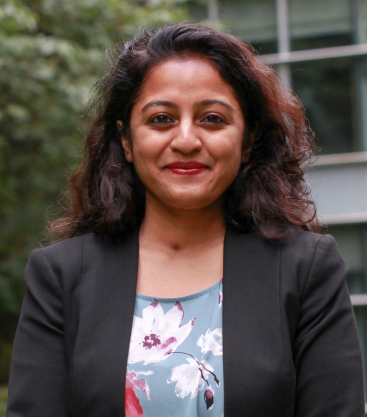
Veena Sriram is an Assistant Professor with a joint appointment in the School of Public Policy and Global Affairs (SPPGA) and the School of Population and Public Health (SPPH) at the University of British Columbia. Her research sits at the intersection of global health, social science and public policy, a
nd her interests are in understanding power and politics in health policy processes in low- and middle-income countries. She draws upon theory and methodologies from the social sciences in conducting her research, and has a particular focus on qualitative approaches. Her work has been published in interdisciplinary journals such as Social Science and Medicine, BMJ Global Health and Health Policy and Planning.
Jackie Denison
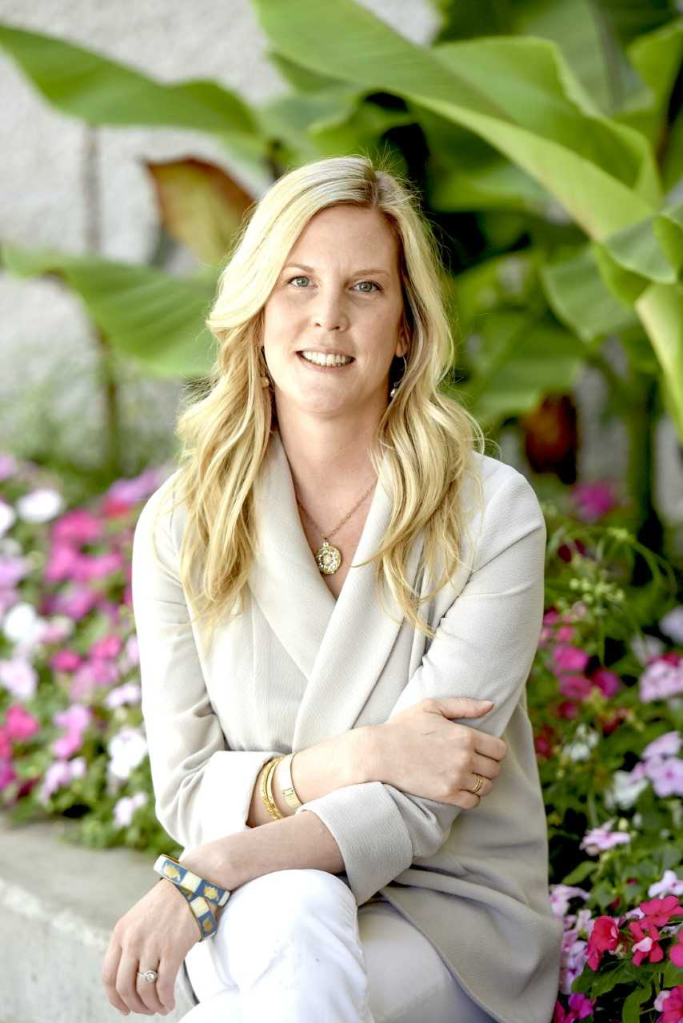
Jackie Denison is an Associate Professor of Teaching at the University of British Columbia Okanagan where she lives as an uninvited settler guest on the traditional, ancestral, and unceded territory of the Sylix Okanagan Nation. Currently, Jackie is also the Acting Director for the School of Nursing at UBC Okanagan.
Her clinical nursing background is in maternal child health. She spent several years working at BC Women’s Neonatal intensive care unit. She has taught clinically on pediatric units all over BC. Jackie holds a BSN and MSN from UBC. Her master’s thesis explored access to health care for rural and urban Indigenous women known to the Ministry of Child and Family Development. Jackie has also led UBCO nursing students on global health practicums in Mongu, Zambia.
Daniel Steel
Lena Kang
Simon Fraser University
Kate Tairyan

Dr. Kate Tairyan holds a medical degree in preventive medicine from the State Medical University in Armenia and a diploma in health management from Armenia’s National Institute of Health. Kate also has a Master of Public Health degree with a concentration on global health leadership from Emory University.
Her public health expertise and work experience includes several positions at the Ministry of Health of Armenia and collaborations with international experts on health policy development and poverty reduction issues at national and local levels. During her postdoctoral studies at UBC, Kate also worked at the National Core for Neuroethics and spearheaded a project to evaluate investigator needs for integrating ethics into neuroscience using neuroimaging as the model. Kate has taught at Simon Fraser University in the Faculty of Health Science undergraduate and graduate programs since 2008.
Maya Gislasson
University of Victoria
Matthew Little
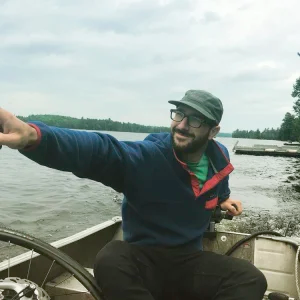
Matt is an Assistant Professor in the School of Public Health and Social Policy at the University of Victoria in Victoria, BC, Canada. He conducts research on Global, First Nations, and Inuit health, community food security, nutrition-related non-communicable diseases, food systems and environments, ecological determinants of health, climate change and health, and environmental contaminants in food sources.
Trinity Western University
Barb Astle
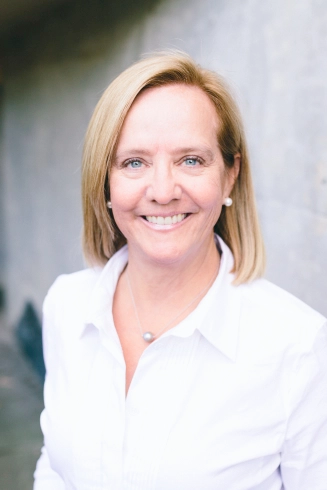
Barbara (Barb) Astle, PhD, RN, Director, MSN Program, Associate Professor of Nursing, and Co-Director for the Centre of Equity and Global Engagement (CEGE), at Trinity Western University, Langley, British Columbia. Her research program focuses on global health and equity, human rights and albinism in Tanzania, competency-based global health education (undergraduate/graduate/ host competencies) partnerships, and participatory research methods, knowledge translation, and research literacy.
She teaches courses in global health (undergraduate/graduate levels). She Co-Chairs the Consortium of Universities for Global Health (CUGH) Education Committees Competency Sub-committee, and co-editor for the CUGH Global Health Education Competencies Toolkit (2019).
Thompson Rivers University
Bala Nikku
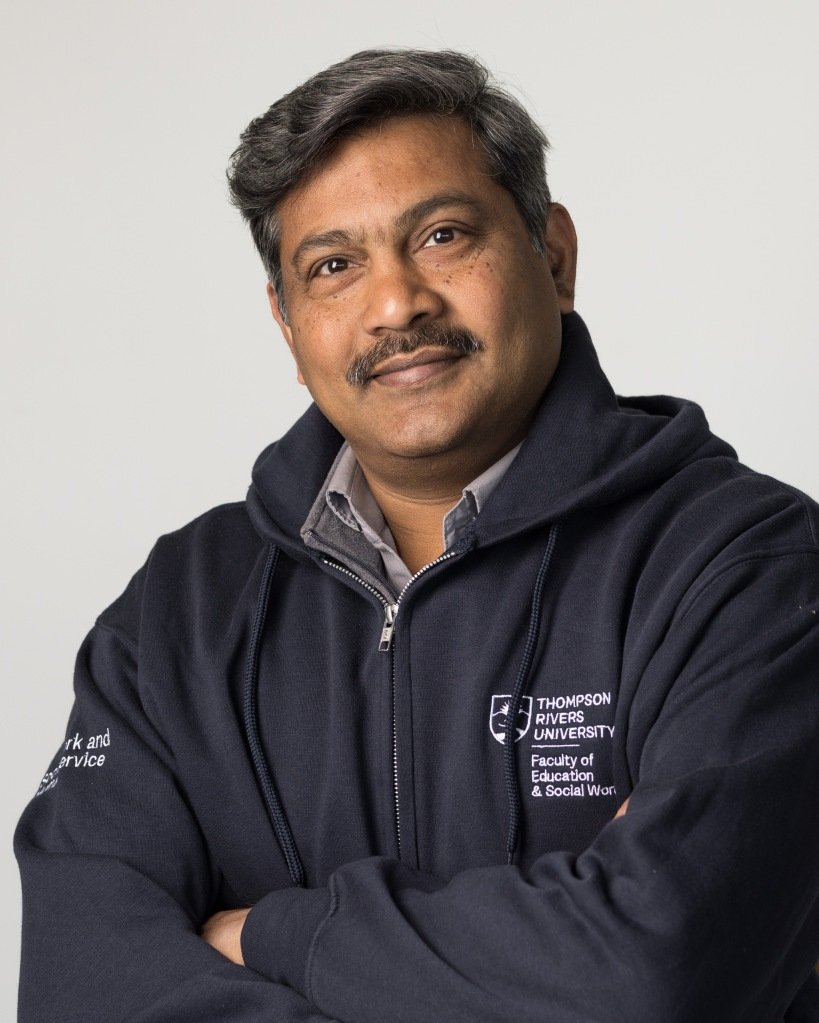
Bala Nikku is a racialized teacher, scholar and practitioner came to Canada in 2018. Currently he is Assistant Professor in the Faculty of Education and Social Work at Thompson Rivers University. Dr. Nikku particularly specializes in the field of international social work, with a focus on community resilience to disasters, climate justice, and immigrant rights and social work practice innovations. Dr. Nikku is currently engaged in research in the fields of Social Work teaching, field education, disaster resilience, community science, maker spaces and circular and social economy. Dr. Nikku is actively engaged in communities of practice, student research training and mentorship, as well as disaster resilience knowledge mobilization initiatives.
Melba Dsouza

Dr. Melba Dsouza is an Assistant Professor at Nursing and Population Health, Thompson Rivers University, British Columbia. Her program of research scholarship addresses public policy and health promotion for improving quality of life in health and well-being in rural communities. It is the paramount that research is aimed at building healthy public policy and practice which promote human rights, social justice and sovereignty. Social justice must be examined beyond the distribution of resources to include the recognition of differences and inclusion of voices of non-dominant groups in society to move toward greater equity and healthy policies for marginalized people and people living in rural communities. Dr. Dsouza is engaged in developing transdisciplinary, intersectoral connections and fostering optimal interprofessional collaborative relationships for co-creating foundations in health and well-being with policy makers, decision makers, leaders, researchers, healthcare professionals.
Subu Karkada
University of Northern British Columbia
Davina Banner-Lukaris
Christiana Onabola
University of Alaska Fairbanks
Arleigh Reynolds
Mira Ziolo
Mira is a Doctor of Veterinary Medicine, currently doing a PhD at UBC. She is a CCGHR (SYP) member, was an active participant in the recent BCCI-2 and is a member of the University of Victoria discussion group on global health research. She has extensive experience in Africa (mainly Rwanda and Uganda).
Rural Health Services Research Network of BC
Stefan Gryzbowski
Kishore Hari

Kishore Hari recently completed his Master of Public Health degree at the School of Population and Public Health at the University of British Columbia. He completed his Bachelor of Science degree in Pharmacology and Physiology at the University of British Columbia. In the past, Kishore has worked as a Digital Health Researcher and also completed a practicum project focused on the provision of medical abortion care from an administrative and clinical perspective within BC. He is passionate about improving health service delivery for under-served populations, particularly those living within rural settings.
Shawnigan Basin Society
Bernhard H.J. Juurlink
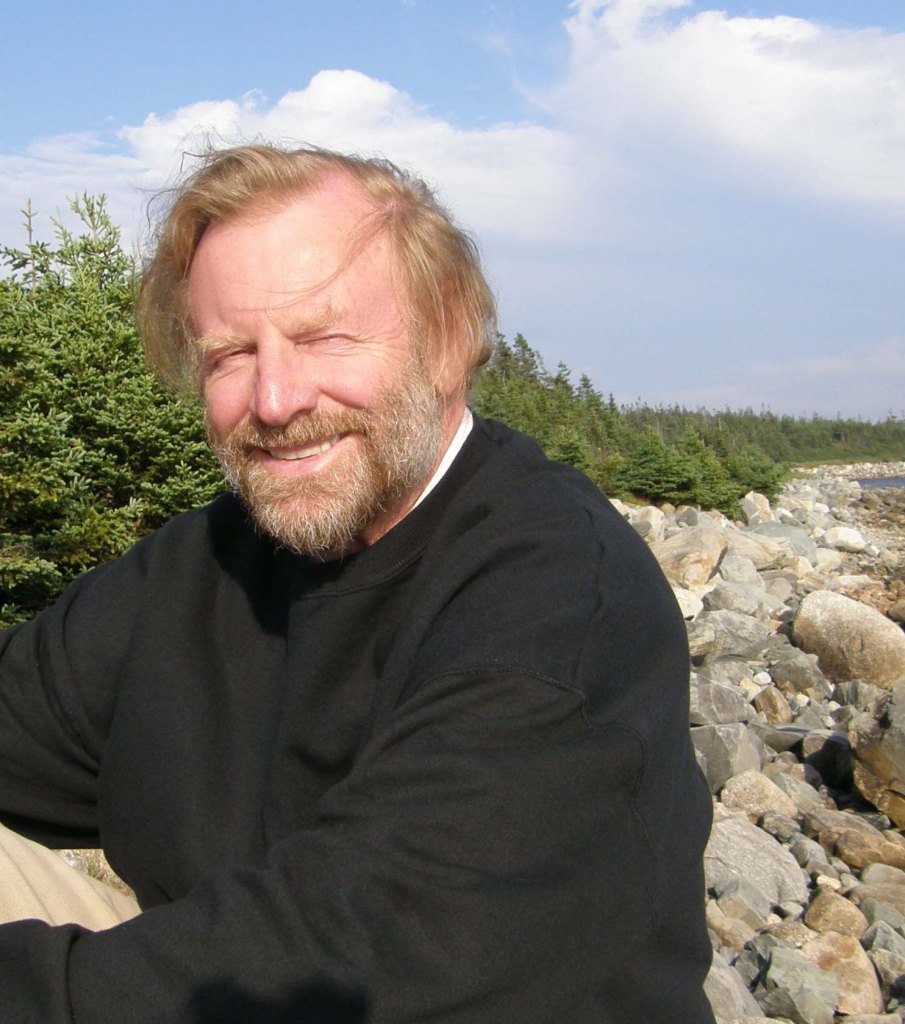
Bernhard H.J. Juurlink, a Professor emeritus, retired after about 40 years teaching and carrying out research in medical sciences. Shortly after retirement he became involved with the Shawnigan Research Group in its struggle to stop the dumping of contaminated soil at a landfill site located in the Shawnigan Lake watershed. He subsequently joined environmental organizations such as the Shawningan Basin Society. A major concern is climate change and decreased biodiversity. Current forestry practices in BC and elsewhere in the world are causing decreased biodiversity by destroying habitat and have turned forests from being net carbon sinks to carbon emitters. There is an urgent need to protect more forests and wetlands and move from the current clear-cutting to an eco-forestry approach.
Community of Practice members
Krishna Todi

Krishna’s background consists of an undergraduate degree in Pharmacy followed by a year’s work experience in Business Analytics. Presently, she is a Master’s candidate in Public Health with a concentration in Global Health at Simon Fraser University.
She is currently finishing a practicum component of her course at Vancouver Coastal Health working with the my Health my Community (MHMC) project team, trying to understanding the barriers/gaps in reaching out to vulnerable populations and developing strategies to better reach out to them. She is doing this through literature reviews, informant interviews and survey development for vulnerable population-serving organizations. With the ever-increasing need for planetary health research and its impacts on health, she aims to gain a strong basis and understanding of the concept and its linkage to human health.
Ngozi-Joe Ikechebelu
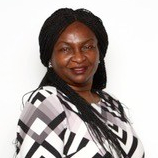
Ngozi Joe-Ikechebelu is sub-Saharan African woman, wife and mother from Nigeria. She is in the graduate program of Social Dimensions of Health at University of Victoria. Presently, she works on intersecting socio-structural issues that affects sub-Saharan African women living with HIV in BC and equity-centred local solutions to climate change in BC and Global South. Ngozi is a member of the Canadian Coalition for Global Health Research (CCGHR) since 2017. With her Medical background, she practised at the public and private levels in Nigeria using her background in Community Medicine and Primary Health Care (now Preventive Medicine). She holds aFellowship with National Post graduate Medical College Nigeria; a Master of Public Health, University of Nigeria; and Master of Science in International Health Management and Development, University of Birmingham, UK.
Nicole Spence

Nicole Spence is a Coordinator at Health Emergency Management BC (HEMBC), a Public Health Services Authority program that provides emergency management and leadership, and an editor for the Canadian Risks and Hazards Network magazine, HazNet.
She holds a BA in Psychology and a Graduate Diploma in Public Health from the University of Victoria, with a focus on International and Global Health and Development, and is starting a MSc of Disaster Healthcare this fall. She is interested in the effects of globalization and climate change on global health and its link to emergency management. Nicole is of Scottish and German heritage and resides on unceded Coast Salish territory. On the weekends, Nicole can be found in the local mountains sharing her favourite rosé or vin chaud with fellow alpinists.